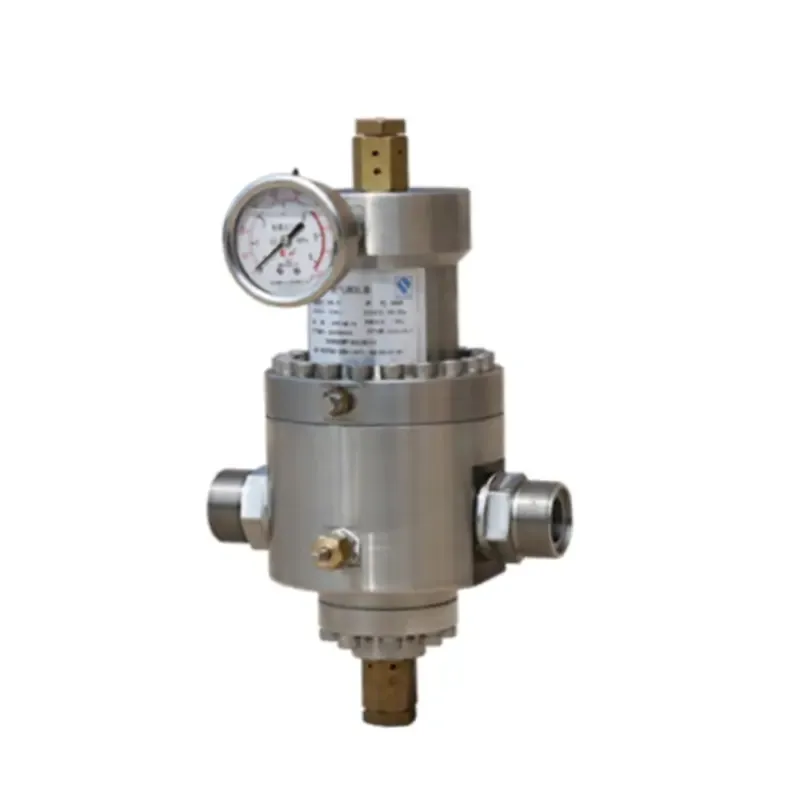
Dec . 29, 2024 09:50
Back to list
Understanding the Function and Importance of Safety Relief Valves in Industrial Systems
Understanding Safety Relief Valves A Critical Component in Pressure Management
Safety relief valves (SRVs) are essential safety devices used in various industries to prevent pressure build-up in equipment and systems. They serve as a safeguard, ensuring that pressure remains within safe limits and protecting both the equipment and personnel from potential hazards. In this article, we will explore the functionality, types, applications, and importance of safety relief valves in maintaining operational safety.
Functionality of Safety Relief Valves
At its core, a safety relief valve operates by automatically releasing excess pressure from a system whenever it exceeds a predetermined set point. This process is crucial in environments where pressure fluctuations can occur due to thermal expansion, sudden changes in temperature, or unexpected equipment failures. When the pressure inside a vessel or pipeline surpasses the set point, the valve opens, allowing excess pressure to escape, thus preventing catastrophic failures such as explosions or equipment rupture.
Types of Safety Relief Valves
There are primarily two types of safety relief valves pressure relief valves and vacuum relief valves.
1. Pressure Relief Valves These valves are designed to open when the internal pressure of the system exceeds the defined limits. Commonly used in boilers, pressure vessels, and other high-pressure applications, pressure relief valves can be further categorized into spring-loaded valves and pilot-operated valves, each having unique operating mechanisms.
2. Vacuum Relief Valves Unlike pressure relief valves, vacuum relief valves protect against negative pressure conditions that can cause equipment collapse. They allow air to enter a system to equalize pressure, preventing the creation of a vacuum that could lead to damage or disruption of operations.
safety relief valve

Applications of Safety Relief Valves
Safety relief valves find applications across a wide range of industries, including
- Chemical Processing In chemical plants, where reactions may produce gases that increase pressure, SRVs ensure safety and compliance with regulations. - Oil and Gas In extraction and refining processes, SRVs protect storage tanks and pipelines from overpressure conditions caused by temperature changes or operational errors. - Power Generation Steam boilers and turbines rely on safety relief valves to maintain safe operating pressures, essential for both efficiency and safety. - Pharmaceuticals In the manufacture of medications, where precise environmental controls are crucial, SRVs mitigate risks associated with overpressure.
Importance of Regular Maintenance
The reliability and optimal performance of safety relief valves cannot be overstated. Regular inspection, testing, and maintenance are vital to ensure these valves function properly when needed. Over time, sediment build-up, corrosion, and wear can impair their functionality, increasing the risk of dangerous pressure levels. Many industries adhere to standards and guidelines, such as those set by the American Society of Mechanical Engineers (ASME), to ensure compliance and safety.
Conclusion
In conclusion, safety relief valves play a pivotal role in pressure management and safety across various industrial applications. By automatically mitigating the risks associated with excessive pressure, they not only protect equipment but also enhance the safety of personnel and the surrounding environment. Understanding their function, types, and maintenance requirements is essential for anyone involved in operations where pressure management is critical. Investing in the proper selection, installation, and upkeep of safety relief valves is not just a regulatory obligation but a moral imperative to safeguard lives and equipment alike. As industries continue to evolve, the importance of these safety devices will remain paramount in ensuring safe operational practices.
Next:
Latest news
-
Safety Valve Spring-Loaded Design Overpressure ProtectionNewsJul.25,2025
-
Precision Voltage Regulator AC5 Accuracy Grade PerformanceNewsJul.25,2025
-
Natural Gas Pressure Regulating Skid Industrial Pipeline ApplicationsNewsJul.25,2025
-
Natural Gas Filter Stainless Steel Mesh Element DesignNewsJul.25,2025
-
Gas Pressure Regulator Valve Direct-Acting Spring-Loaded DesignNewsJul.25,2025
-
Decompression Equipment Multi-Stage Heat Exchange System DesignNewsJul.25,2025

